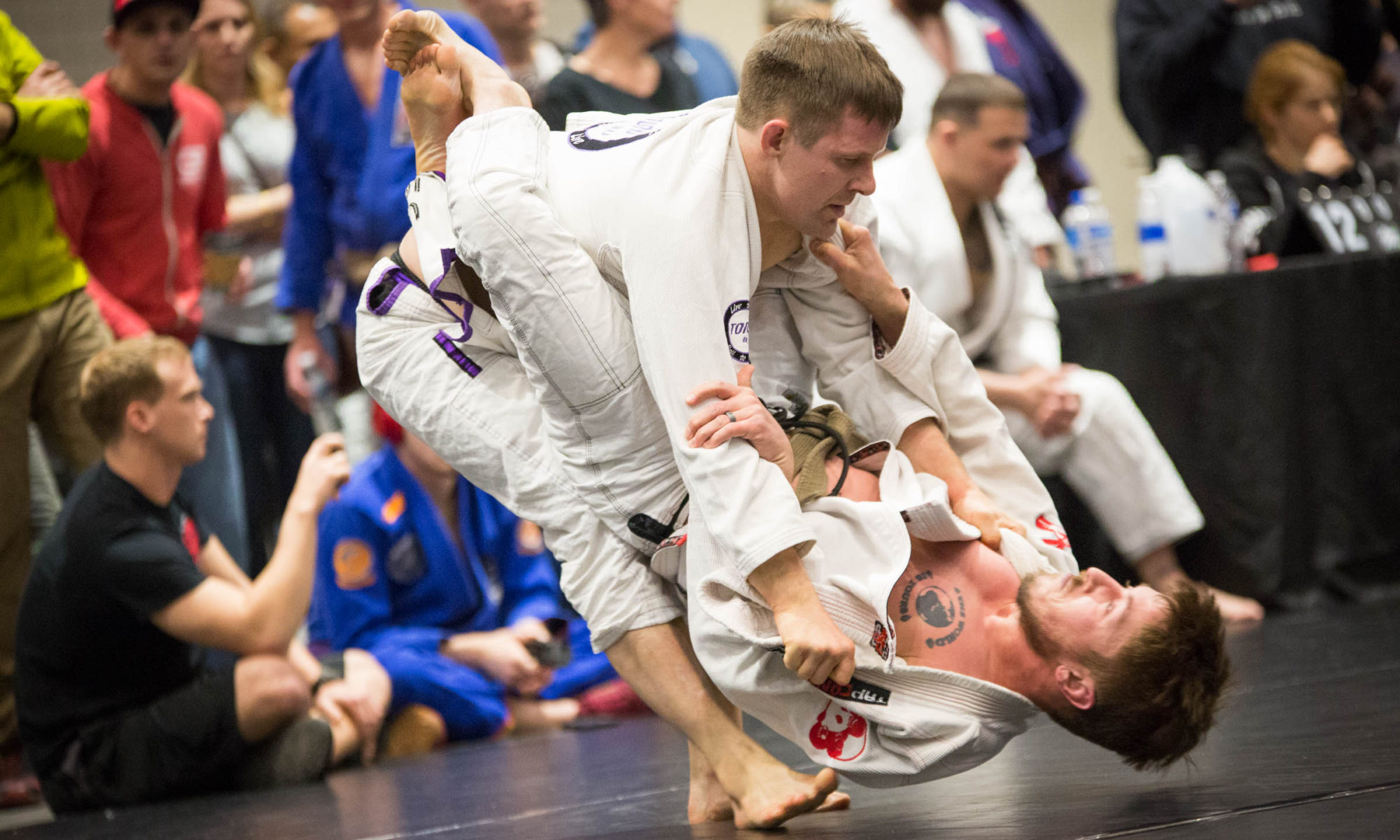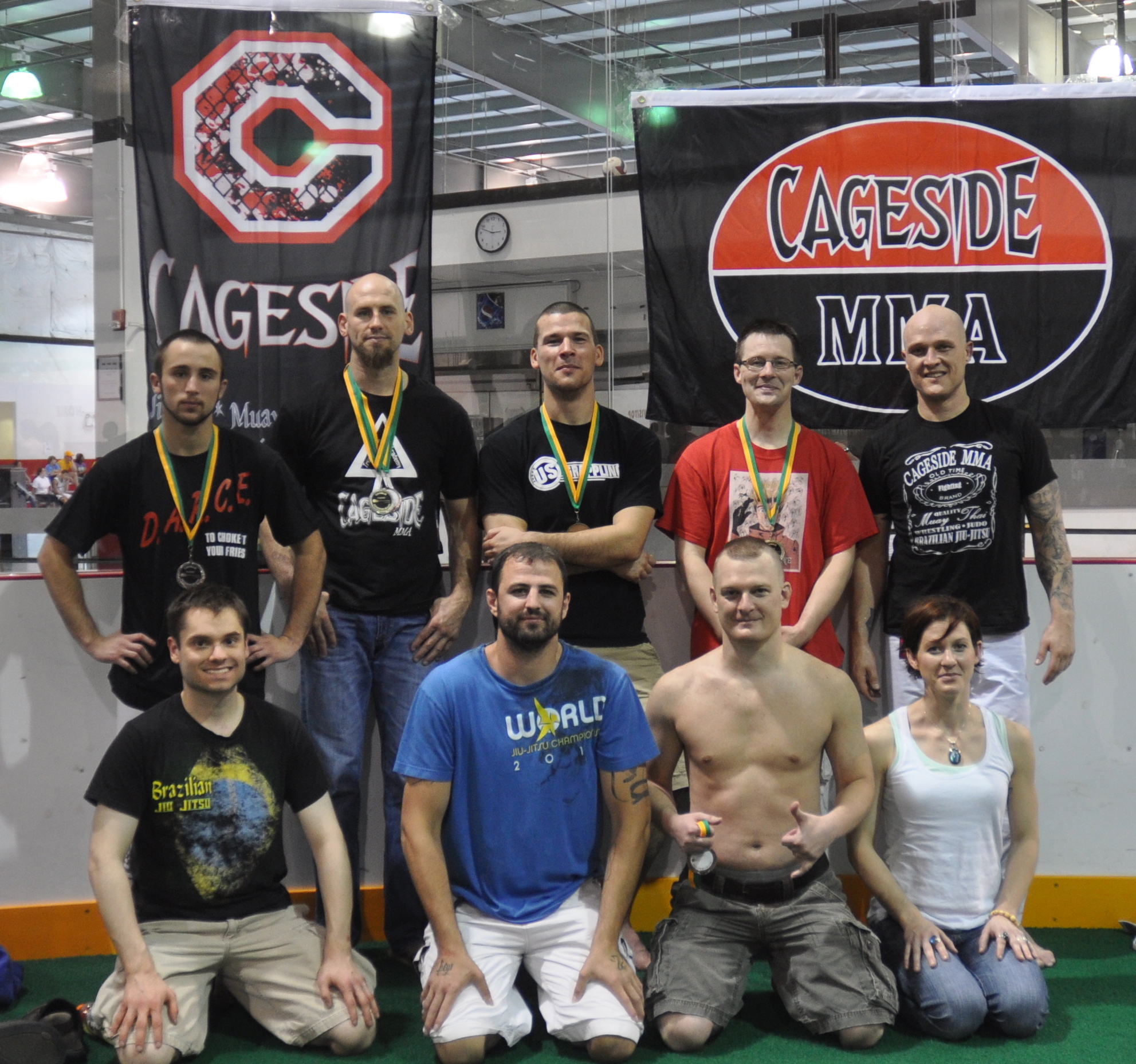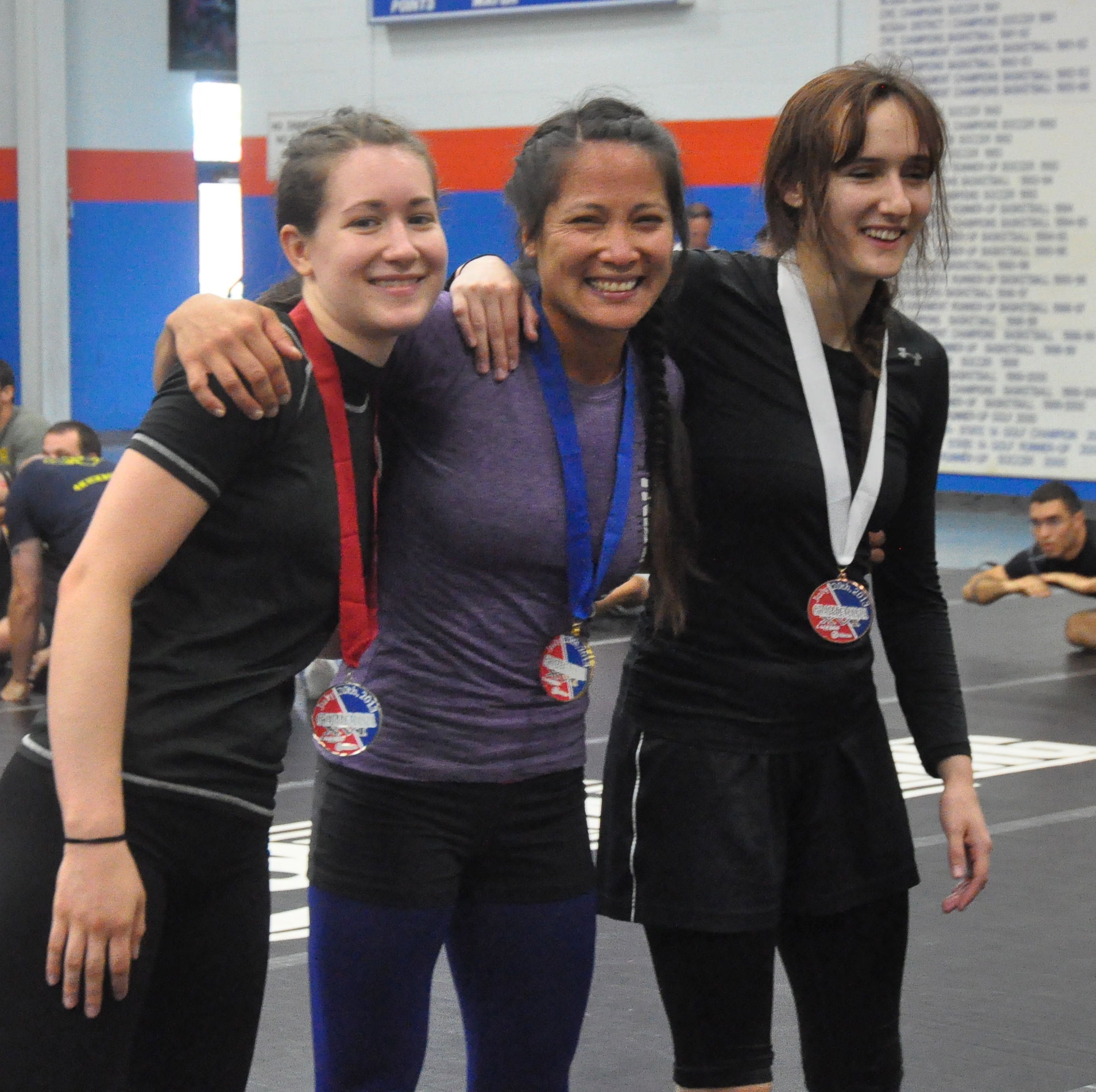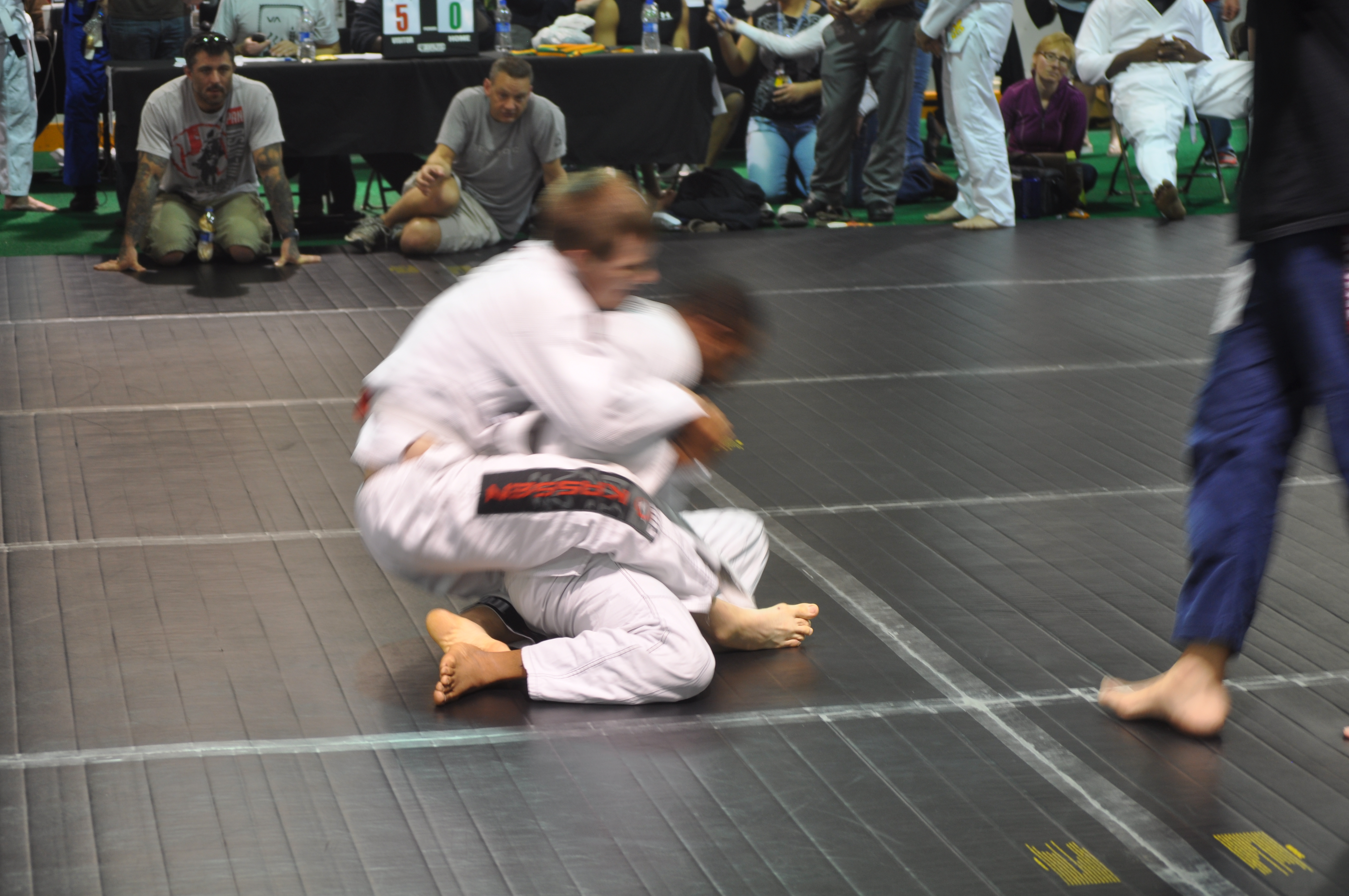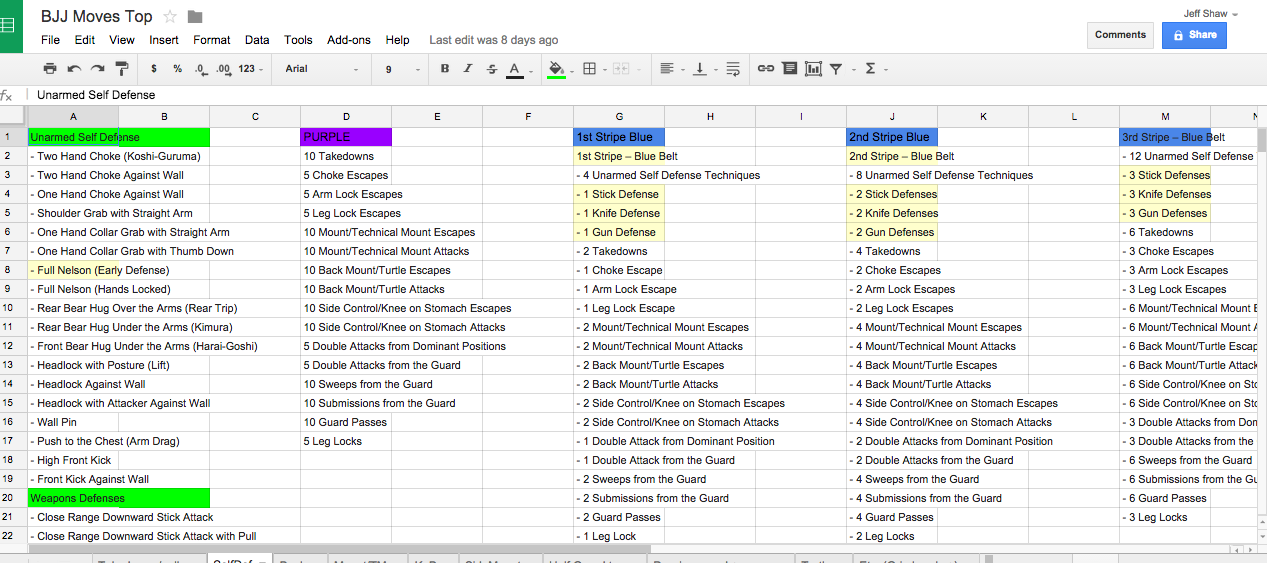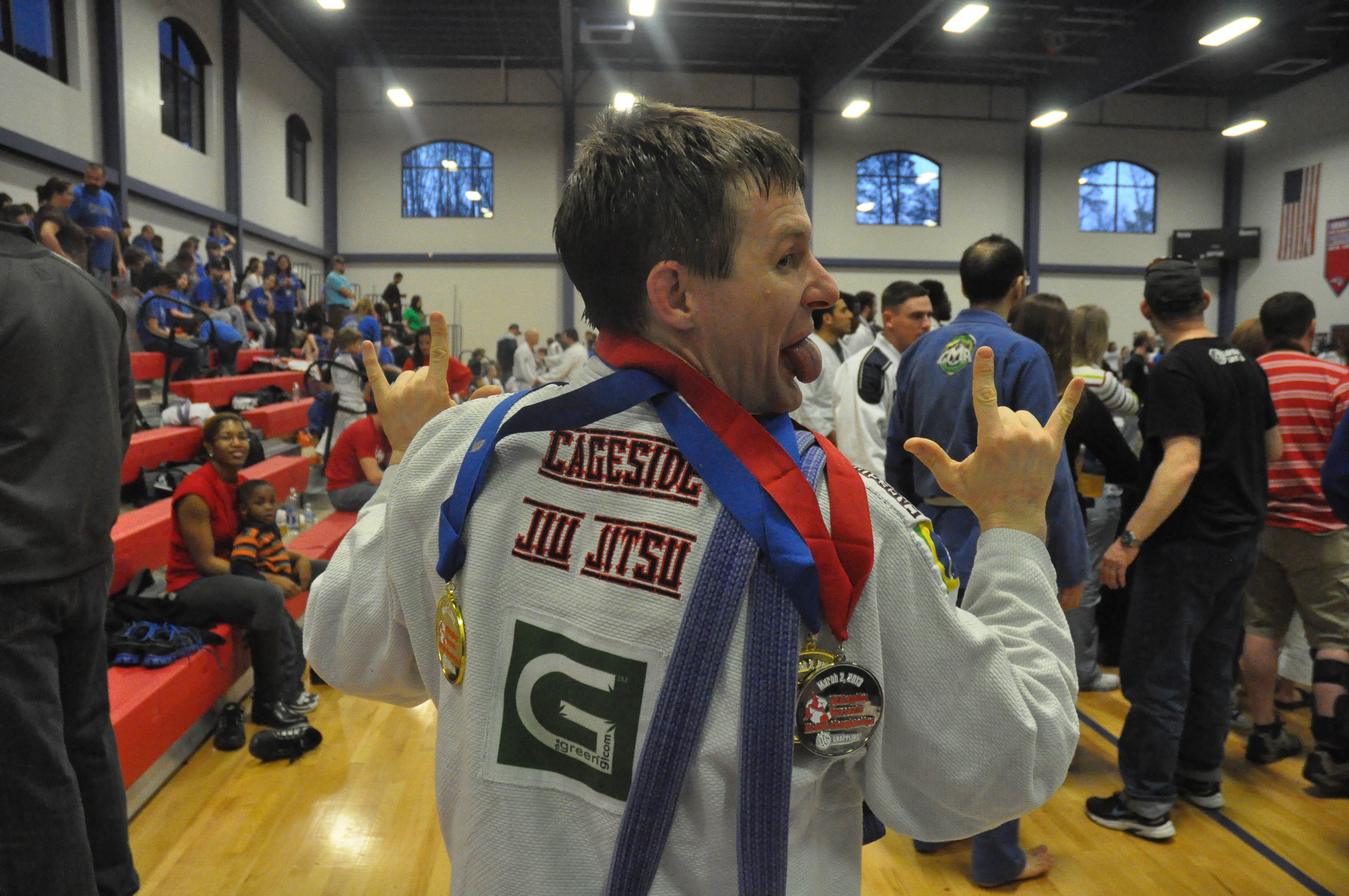I asked a stupid question the other day.
I knew it was stupid a few short minutes after I’d asked it, as the patient upper belt’s explanation kept going over things that I really should have known or at least guessed.
We’ve all done this, I imagine: had an unexplored thought, blurted it out in the form of an ignorant query, and quickly felt the hot red blush of embarrassment
Here’s the thing, though: I don’t regret it.
I don’t regret asking any of the litany of dumb, addled, ridiculous and flatly absurd questions that I’ve asked Seth Shamp, Jake Whitfield and Roy Marsh over the years. (Those guys might regret it, I don’t know: I haven’t asked them, since I don’t really want to know the answer). I’ve probably asked two or three dumb questions today already, and I plan on asking more tomorrow.
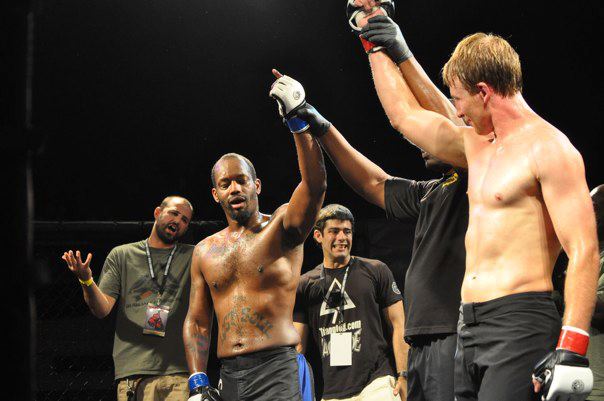
Questions — and the answering of questions — are among our most powerful tools for learning.
If questions come from a place of ignorance, then answers help dispel that ignorance. (“Hey, why do I need an underhook when I do that guard pass?” “Well, you don’t, if you enjoy having your back taken”). If questions come from a place of some knowledge, then answers and dialogue can help flesh out our understanding. (“If I want to improve my self defense, how should I approach tournaments?” “… well, let’s talk about that.”)
The learning doesn’t just go one way, either. I’ve learned a lot from having to explain seemingly basic concepts and techniques.
Magic Johnson was a legendary basketball player, but a terrible coach. I believe this was because he never really had to think about basketball strategy: it was just so deeply embedded in him that shockingly perfect passes happened whenever he had the ball. I’m sure you can think of an incredible jiujitsu practitioner whose idea of technical instruction is “the arm is right there: just take it. … OK, let’s drill it, guys.”
When someone asks you about a fundamental technique, it forces you to go back to that original position and see it from their perspective. Drilling reinforces the right movements, helping our bodies learn how to react correctly. Answering questions does something similar for our minds.
Having to answer “why do you do this when you’re in guard?” makes me think “… yeah, why *do* I do that?” I might have a good reason or I might not. Thinking about it helps me figure that out. Because of conversations like this, I’ve fixed some of my mistakes and also deepened my understanding of why the correct things I do are correct.
Americans’ biggest fear, outranking all others, is public speaking. This is because people are afraid of saying things that will get them laughed at.
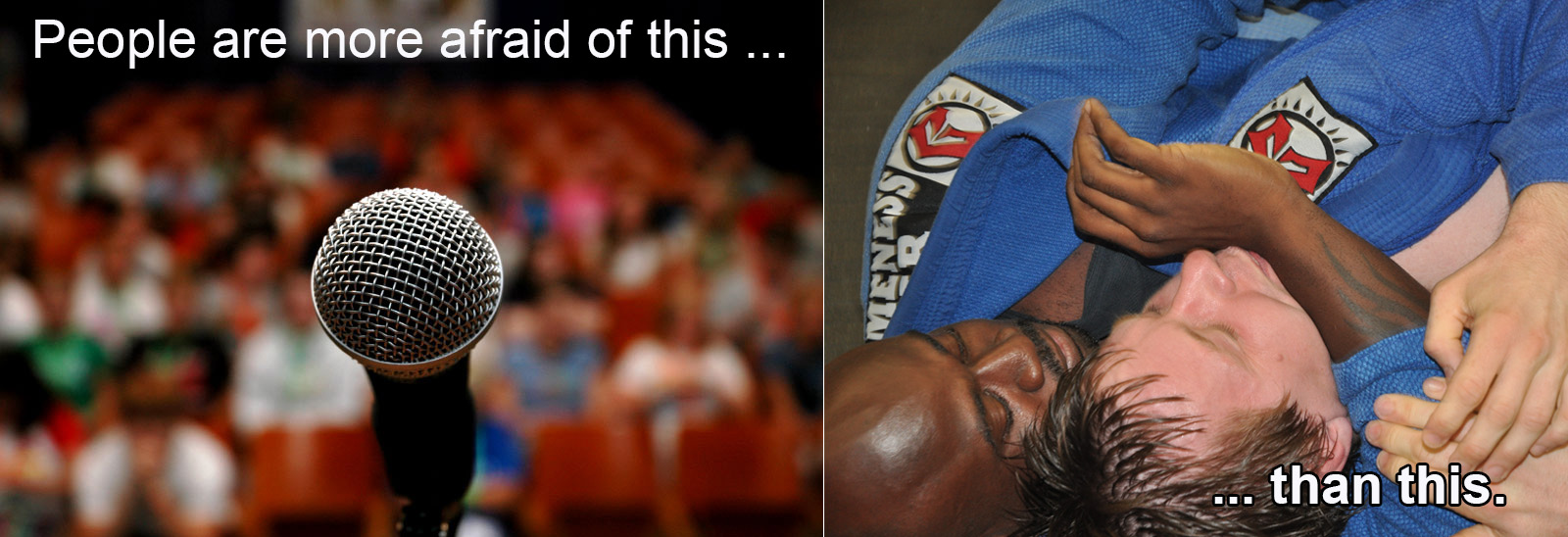
This impulse is as understandable as it is counterproductive. Nobody likes to embarrass themselves in public. Even if putting yourself out there is the best way to improve your skills, it can be difficult. Which just makes it more important.
One of the great things about being a nerdy guy who was on the debate team is that I’m used to both public speaking and getting ritually mocked. Due to this early conditioning, it’s easier for me to laugh at myself. There’s an Amanda Palmer song with the line “I still get laughed at, but it doesn’t bother me. I’m just so glad to hear laughter around me.” That’s basically how I feel.
Or, as pop-punk band Jawbreaker said in a different context, there are times for being dumb.
The people I ask the most questions are the people I respect the most. Because their time is valuable, I always try to be conscious of not overstaying that welcome. But I know I gain a lot from it, and that courtesy is something I want to pay forward.
So I never want to discourage people from asking me questions. I love talking about jiujitsu and I love helping people who I have the ability to help. Questions, discussions and even disagreements are productive, as long as we keep an eye on the outcome we want — which is deepening our knowledge base. As the philosopher Karl Popper said of debates, “I may be wrong and you may be right and, by an effort, we may get nearer the truth.”
There’s a reason this blog is named what it is: it’s important for me to keep that white belt mind. We need to keep learning and re-learning to develop a full understanding of anything, but especially something as vast as jiujitsu.
When Dave Camarillo signed Roy Marsh‘s copy of “Submit Everyone,” he added an inscription that I thought was revealing: “To Roy: Never Stop Learning.”
Dave is a legend, and both he and Roy have done far more in martial arts than I ever expect to. But after 30-plus years of training, this is the message Dave chose to convey to another accomplished black belt.
Think about that. And maybe even ask somebody you respect a question about it.
